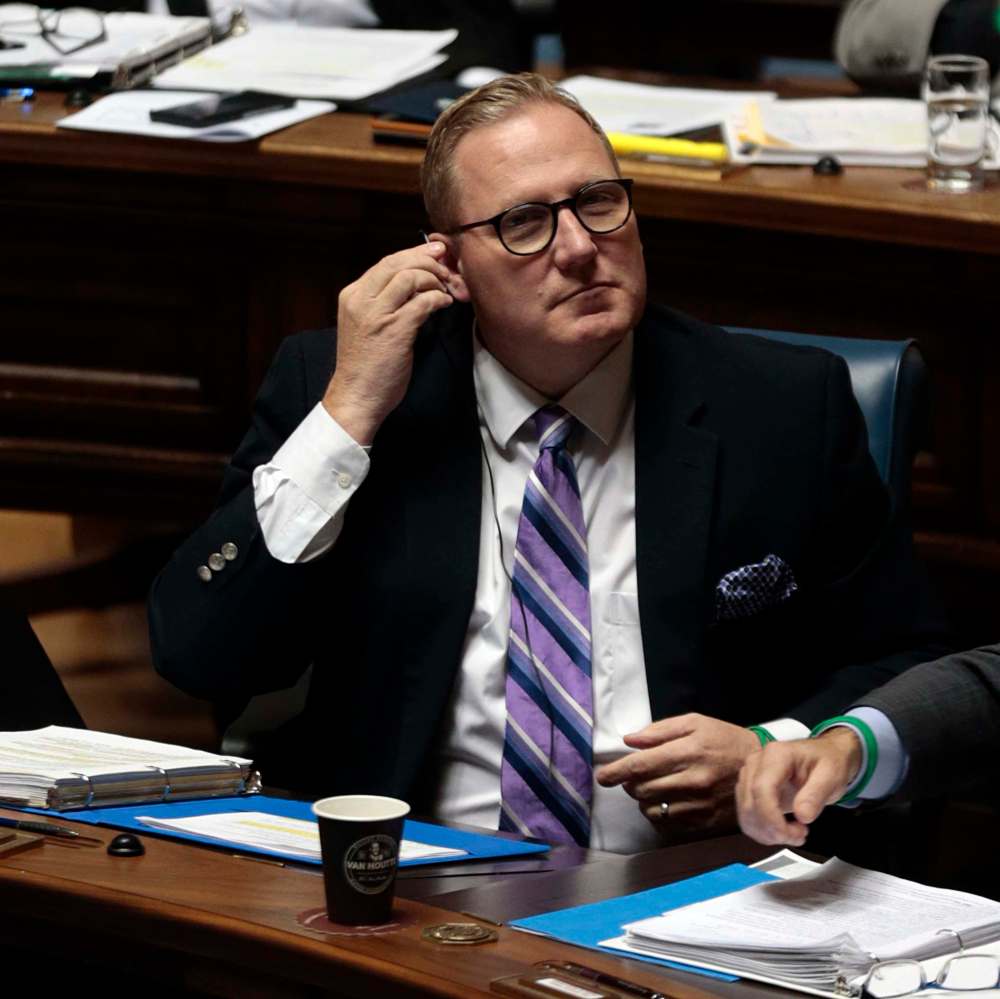Province sets pace for lower operating deficit
Advertisement
Read this article for free:
or
Already have an account? Log in here »
To continue reading, please subscribe:
Monthly Digital Subscription
$0 for the first 4 weeks*
- Enjoy unlimited reading on winnipegfreepress.com
- Read the E-Edition, our digital replica newspaper
- Access News Break, our award-winning app
- Play interactive puzzles
*No charge for 4 weeks then price increases to the regular rate of $19.00 plus GST every four weeks. Offer available to new and qualified returning subscribers only. Cancel any time.
Monthly Digital Subscription
$4.75/week*
- Enjoy unlimited reading on winnipegfreepress.com
- Read the E-Edition, our digital replica newspaper
- Access News Break, our award-winning app
- Play interactive puzzles
*Billed as $19 plus GST every four weeks. Cancel any time.
To continue reading, please subscribe:
Add Free Press access to your Brandon Sun subscription for only an additional
$1 for the first 4 weeks*
*Your next subscription payment will increase by $1.00 and you will be charged $16.99 plus GST for four weeks. After four weeks, your payment will increase to $23.99 plus GST every four weeks.
Read unlimited articles for free today:
or
Already have an account? Log in here »
Hey there, time traveller!
This article was published 13/12/2019 (2191 days ago), so information in it may no longer be current.
Midway through the current fiscal year, Manitoba is on pace to post a slightly lower operating deficit than forecast, while spending on strategic infrastructure is projected to fall by $177 million.
Finance Minister Scott Fielding released his department’s mid-term report Friday.
The report, covering the period from April 1 to Sept. 30, projects an operating deficit of $350 million for the 2019-20 fiscal year — down $10 million from what Fielding projected in his March budget.

Fielding said government revenues from personal and corporate income taxes are a little higher than expected, while expenses are trending lower.
While overall infrastructure spending is down, he noted outlays for roads, bridges and flood protection are projected to come in close to budget: $603 million, rather than $605 million.
The major underspending is in the areas of health, education and housing infrastructure, the minister said. This is now projected to total $367 million, rather than $538 million.
Fielding said some projects came in under budget, such as the recently completed Women’s Hospital ($32 million) and a new high school in Niverville ($3 million). A total of $4.3 million was saved by completing the new Dauphin hospital emergency room early, he said. Some $7 million will be unspent due to project delays in housing.
Fielding said the province remains on track to eliminating its deficit in 2022-23.
The government has been at odds with the provincial auditor general regarding some of its accounting practices. The government pegged its deficit last fiscal year at $163 million, while the AG said the province actually recorded a small operating surplus in 2018-19.
This year’s mid-year fiscal update was far less detailed than in past years, consisting of only four pages. Normally, it is three times that length or more. Missing this year were departmental spending breakdowns and detailed information on revenues.
Fielding said the lack of detail was due to government departmental reorganization that accompanied the recent cabinet shuffle. He promised there would be more detailed information provided in the next quarterly financial report.
Meanwhile, Fielding announced a new system to track public-service performance is now up and running. The new scorecard system had been in the planning stages for two years.
It will allow Manitobans to monitor the province’s progress on a wide variety of areas — from student literacy to ER wait times and the time it takes for criminal cases to come to trial — at one website.
“We’ll be rolling out this system across government by the middle of next year,” Fielding said.
He said New Brunswick has used a scorecard system since 2012, resulting in at least $87 million in government savings.
The system shows the specific goals the government has set for various departments and how close it is to meeting them. Information can be found at www.MBMeasuringProgress.ca.
larry.kusch@freepress.mb.ca

Our newsroom depends on a growing audience of readers to power our journalism. If you are not a paid reader, please consider becoming a subscriber.
Our newsroom depends on its audience of readers to power our journalism. Thank you for your support.


